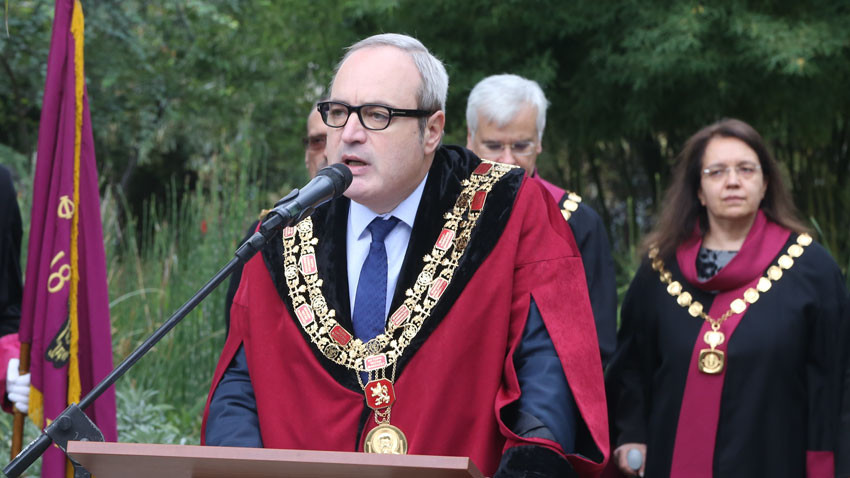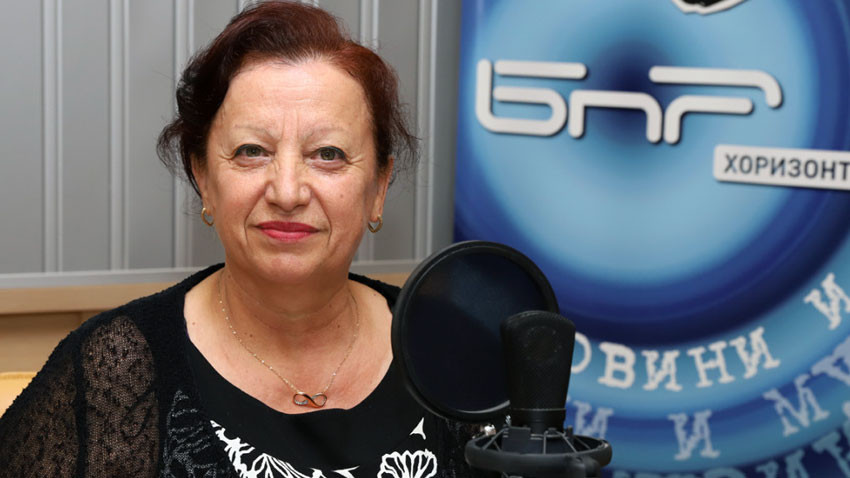A different academic year is starting at universities in Bulgaria. For the first time applicants applied to universities remotely, and once they were able to tackle the challenges of working in a 100% remote environment, university administrations had to face another, perhaps even more difficult question – how to meet the requirement of a drastic rise in tuition fees – by up to 50% in places – and be able to keep students interested in the educational programmes they offer. At the same time it became clear that the country has money to spend on education, but that 60% of it will be given depending on the fulfilment of the quality of education criteria. That is how, within a brief space of time, and in the condition of global pandemic, the conditions and priorities of Bulgaria’s universities had to be rearranged.
The new academic year got to an unusual start at some universities in the country - with a video address to the students. As coronavirus spreads around the world, rectors chose to welcome their students online, and online only, noting that it is their priority to safeguard the life and health of their students. Not so at the oldest higher education establishment in the country. Sofia University St. Kliment Ohridski is giving the official start to the academic year with a solemn ceremony outdoors, in the university’s botanical garden. All faculties arefree to choose between in-person and remote tuition, says Rector Prof. Anastas Gerdzhikov:

“We shall start mostly with in-person tuition, at least for the first year students. For the students from the 2nd to the 4th year there will be a hybrid model – either in-person for the natural science faculties, where students need to do practical work, or mixed or online for the humanities and social sciences. Most lecturers are concerned that with 100% online tuition quality will go down,” Prof. Gerdzhikov said for the BNR.
The University of National and World Economy in Sofia started its academic year on 14 September with in-person tuition. The university marked its centennial jubilee just before the start of the academic year in this country.
Assoc. Prof. Lilyana Valcheva, chair of the university’s board of trustees, and of the Confederation of Independent Trade Unions’ “Higher Education and Science” national TU says:

“By how active students are we can judge of the quality if a given educational establishment. It is for this reason that the UNWE is my favourite university, I feel proud because I see evolution. And not just in terms of technical modernization, there is a spirit of friendship, of understanding as well. Lecturers and students have respect for one another. What we, lecturers see in this burst of energy at the university - and we can’t help but believe it – is that there are smart, enthusiastic young people in Bulgaria. We all want to see our country strong socially, but if we want to have a socially strong Bulgaria it needs to have a stable economy. And that can happen on the basis of a lot of knowledge, and that is something the UNWE provides. That is why we have so much hope in the students, we invest in them.”
*Your success is our goal!
Photos: BGNES and BNR
The program of the Orthodox Book Week offers meetings with authors, publishers and translators of Orthodox books from the last few years. The event is held until November 10 at the ''St. Procopius of Varna'' Church, with meetings taking place every..
The "Kabiyuk" horse breeding farm in the village of Konyovets is the oldest stud farm in Bulgaria, founded in 1864 by Midhat Pasha, the governor of the vilayet of Ruse, to produce horses for the Turkish army. The farm existed until the Russo-Turkish War..
There is no exact statistic on the number of Bulgarians living abroad, but a report from the Ministry of Foreign Affairs from last year indicates that around 2.8 million Bulgarians are living outside the country . According to the 2021 population census..
A short video kaleidoscope of the "untold stories" of worthy Bulgarians - scientists, entrepreneurs, engineers, artists - who have contributed to our..
The usurpation of cultural heritage is one of the many inevitable consequences of any military conflict, both historically and today. Until the end of the..
Athens plans to modernise the Greek army by 2030 Greece's Defence Minister Nikos Dendias presented the plan for changes in the army to the..

+359 2 9336 661
